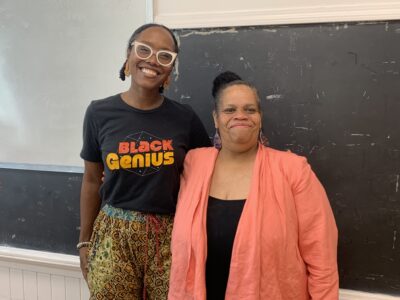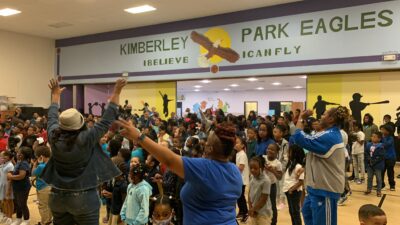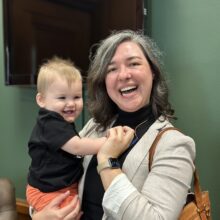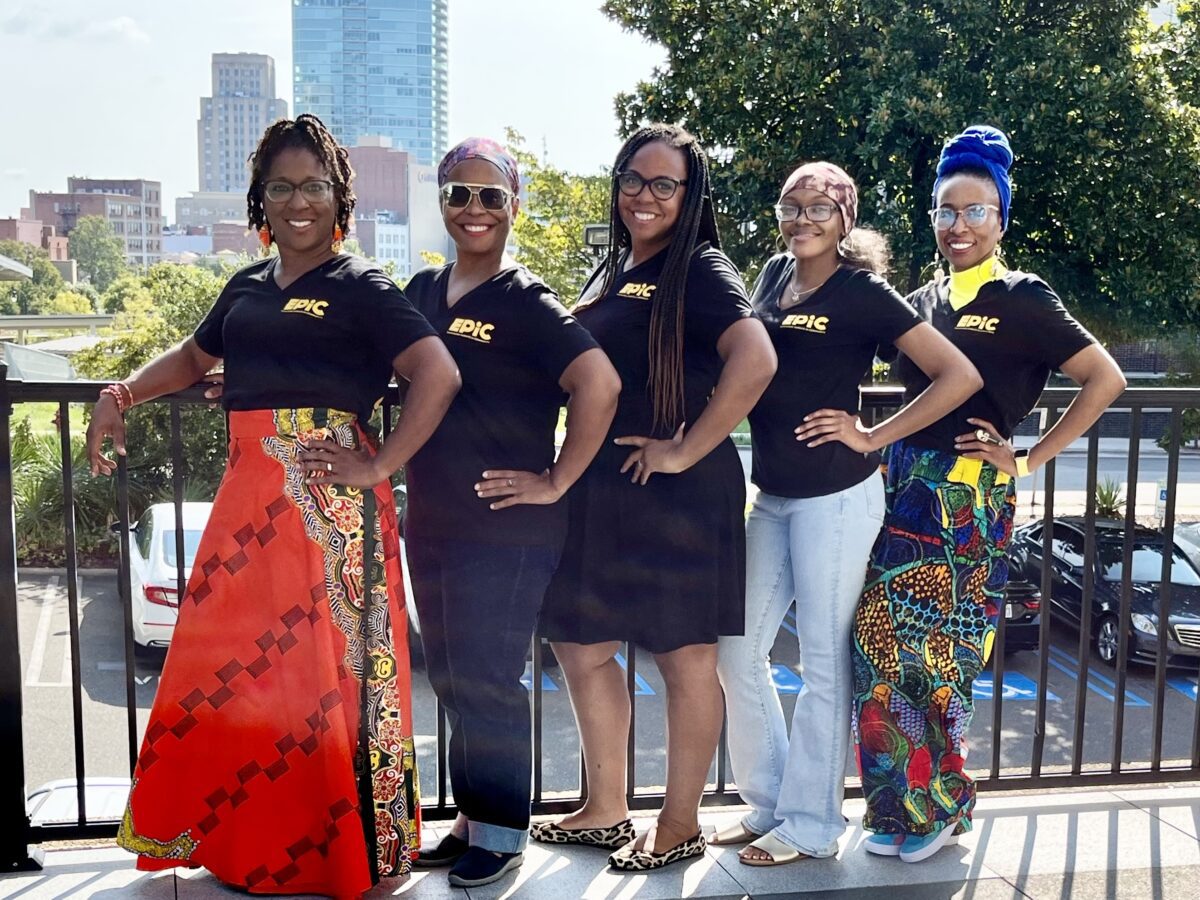
|
|
For the past year, two organizations — EPiC (Empowered Parents in Community) and we are (working to extend anti-racist education) — have been part of a collaboration designed to eliminate the use of exclusionary discipline for preschool students, a punishment disproportionately used against Black children.
Standing in the gap
As the name suggests, at EPiC the focus is on empowering and organizing Black parents to advocate for equity in the education system.
Until now, EPiC has done this work with parents of K-12 students, building a community of parent advocates who bridge the gap between home and school.
“I began this work because when my son was in first grade, he was regressing in school and I couldn’t figure out what it was,” said Jovonia Lewis, founder and executive director of EPiC.
“I was doing everything that I needed to do as a parent to help support him — going to PTA meetings, going to school improvement plan meetings — and it wasn’t until the end of the year that another parent approached me and said, ‘Hey, you know our school has an achievement gap and all the Black kids are not doing well.’”
While Lewis was relieved to know it wasn’t just her son, she was outraged by the idea that Black students were collectively falling behind. She realized that what they were facing wasn’t an achievement gap, but an opportunity gap.
Black students like her son were being excluded from learning through suspensions, expulsions, and trips to the principal’s office. The behaviors for which they were being punished were typically appropriate for their age and stage of development, but were being perceived differently in Black children than in white children.
That’s when Lewis decided to stand in the gap.
She developed a strategy to bring Black parents together to learn about how systemic racism operates in education, then to increase the leadership opportunities and decision-making power of Black parents at her son’s school.
“My work was to share the data, to realize there was a moral outrage about the data and the experience the children were having, and to move that to a place of collective dreaming, to collective hope, to mobilization,” Lewis said. “We can’t just sit there and have this pity party, but we have to actually move things.”
At first, teachers bristled. Lewis said they felt like parents were blaming them for the opportunity gap. So Lewis brought in a guest speaker who explained that systemic racism in education is a national and historical issue, that it wasn’t specific to one school or its staff, but that it was in their power to fix it.
“That brought down a lot of the tension and allowed us to begin to work closely together,” Lewis said. “And after our first year, we had the greatest growth in academic performance by Black students in their school.”
That was the beginning of EPiC, which now also conducts a mental health support group for parents called Circle of Hope. Rooted in Lewis’s training and experience in counseling, parents who participate in Circle of Hope have the opportunity to share experiences and resources, preparing them for educational advocacy.
Now Lewis is bringing that model of success to Durham’s Black preschoolers. And she’s doing it by layering her project into that of another local racial justice organization.
‘Educators are the pipes’
Dr. Ronda Taylor Bullock, founder and executive director of we are, explains her organization’s mission succinctly: “We do anti-racism work with children, with families, and with educators to disrupt systemic racism in the education spaces.”
They offer summer camps for children in elementary school, professional development for educators, and workshops for parents and families.
“We’ve been teaching [our anti-racist curriculum] now for seven years in our summer camp,” Bullock said. “So what I wanted to do was not move into middle school, but go down to the foundational level where I first encountered a lot of this harm.”
For Bullock, that first encounter with racism occurred in kindergarten. A white classmate invited everyone at their lunch table to her birthday party — except Bullock.
“And when I asked her, you know, ‘Why didn’t you invite me?’ she said, ‘Well, my dad said Black people are not allowed in our home,’” Bullock told EdNC.
This experience from the 1980s ultimately led her to become an expert in white children’s racial identity construction.
“The research shows that by six months, children can recognize a difference in skin color,” Bullock said. If children that young are already understanding racial difference, Bullock knew they could benefit from their own age-appropriate anti-racist curriculum.
“Children are paying attention and forming thoughts about people to whom they’re similar and from who they are different,” Bullock explained. “And so what would it look like to talk about skin colors, to talk about where it comes from, to talk about your identity, the importance of your name, the food you eat?”
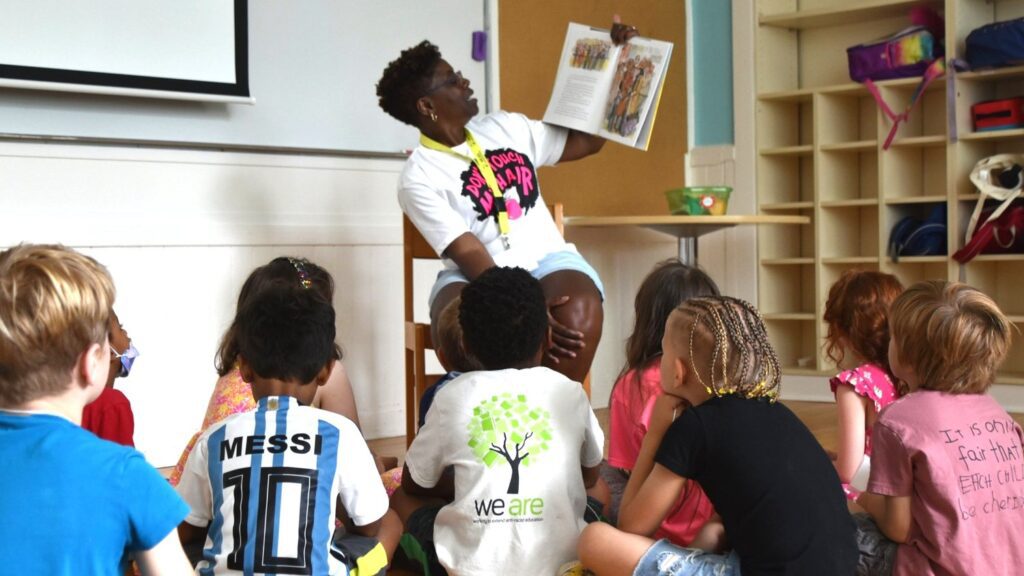
In addition to adapting their anti-racist curriculum for preschool students, we are is training early childhood educators to eliminate the disproportionate use of exclusionary discipline against Black children — sometimes referred to as the preschool-to-prison pipeline.
“Some early childhood centers say, well we don’t have school resource officers, so the school-to-prison pipeline isn’t an issue for us,” Bullock said. “They don’t recognize that exclusionary practices such as removing a kid from the carpet, sending a kid out, sending a kid home, those things are happening disproportionately to Black children, not white children who had similar behavior.”
But it doesn’t have to be this way.
“One of the things that I always tell people is that in the school-to-prison pipeline, educators are the pipes,” Bullock said. “No one person or no one system can end racism, but you can definitely stop the school-to-prison pipeline at your school — that is 100% within your control.”
Seeing children for who they are
Both EPiC and we are share the goal of eliminating exclusionary discipline in early childhood education settings. And both wanted their strategies to be driven by the communities they serve, especially parents.
So EPiC facilitated a series of parent listening sessions to benefit the work of both organizations.
The sessions have helped EPiC learn how structural racism manifests, specifically in preschool settings, and how that may differ from the K-12 settings they’ve worked in before.
For we are, “What we’re trying to do is better understand what is it, first and foremost, that parents recognize children need to see in the curriculum,” Bullock said.
Both organizations will use what they’ve learned together to promote culturally responsive, strength-based strategies to eliminate exclusionary practices in preschool classrooms.
“It’s been fun to listen to,” Lewis said of the listening sessions. “The first one was overflowing with people ready to talk and share their experiences, rich information,” Lewis said.
Five sites are participating in we are’s anti-racist curriculum and professional development pilot this year. EPiC has secured one site to pilot Circle of Hope and advocacy training for preschool parents, and is in the process of securing another. (If your preschool is interested in becoming a pilot site for EPiC’s project, please contact info@epic-nc.org.)
“This project is one project I am most excited about,” Lewis said. “It is just an opportunity for us to put into practice the model that we feel will most help parents to bridge school to home, to increase trust between providers and parents, to see the children for who they are.”
Recommended reading
